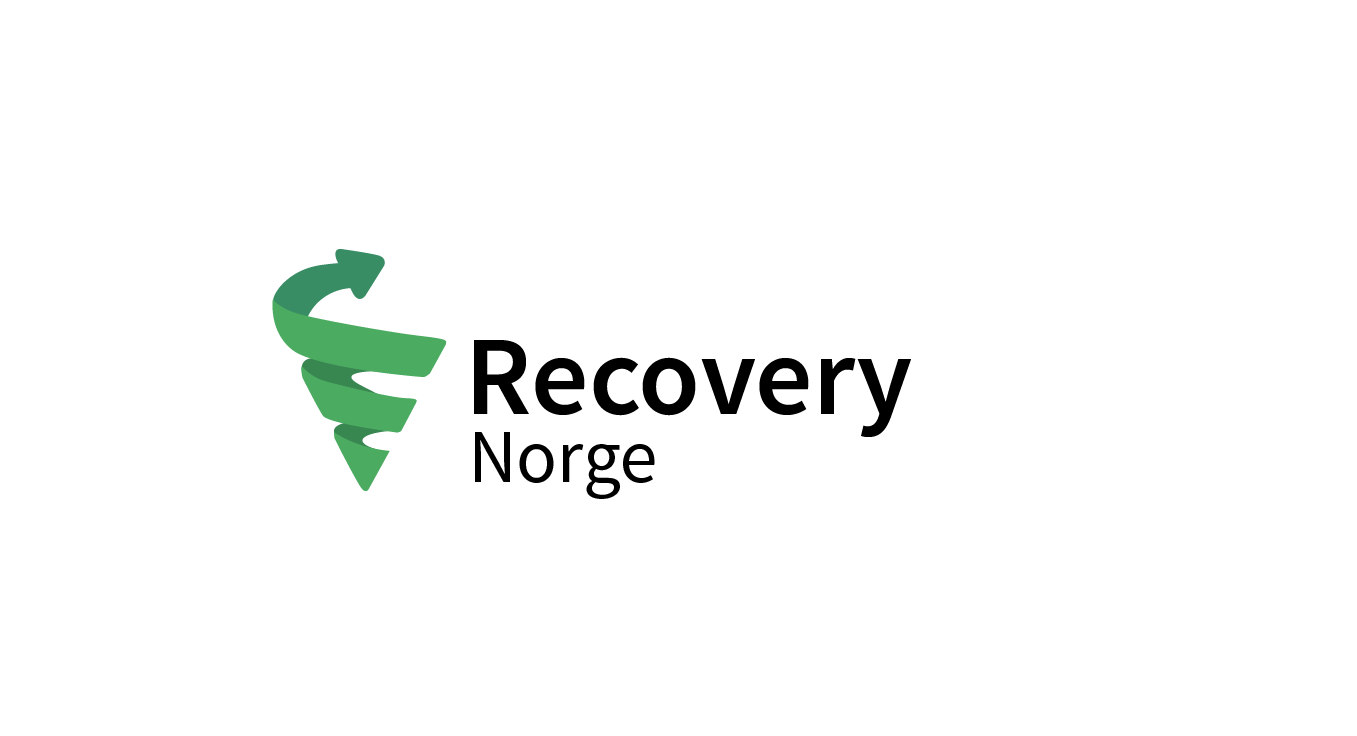Author: Mari Hofsøy Pettersen
For two to three more years and I forced myself onwards, despite my ever-deteriorating state of health. When I was nineteen, I had my tonsils removed after innumerable throat infections.
At the time I had a sales job and worked all the time. Following several dizzy spells and a lot of sleepless nights, I ended up hitting the wall. I collapsed at work and woke up several hours later. After this I was prone to fainting several times a day, sometimes ending up with concussions. I was sent from hospital to hospital for over a year, going through every test imaginable. As I also had a fever every day for more than a year, I was always admitted when I had to undergo these tests.
The body could not take the pressure
In my experience, more often than not the consultants had a preconceived notion of a diagnosis before meeting me even, and when this did not correspond to my clinical condition, they tended to reject me. My health deteriorated, running a fever, having dizzy spells, arrythmia, muscular pains and light- and noise sensitivity. I experienced frequent bouts of arrythmia, and extra heartbeats; where it felt as though the heart was running amok, with me incapable of stopping it. As a result, I would feel sick and pass out. At its worst this could happen up to several times a day. I was put on beta blockers and blood thinners which I took for about two to three years. It was my own decision to cut back and gradually stop taking them. (This condition has improved a lot, although I still have some events with extra heartbeats and arrythmia). It was also discovered that I had hypothyroidism and will need medication for this condition for the rest of my life.
I went into a mode where I overrode all and any physical reactions, believing I could force myself to become well again
I was so stubborn; refusing to accept that I was unwell, and that my body could not take all this pressure. I’d always had a high capacity for work, and constantly strove improve. I put a lot of pressure on myself, living up to what I also thought others expected of me. Simply put I went into a mode where I overrode all and any physical reactions, believing I could force myself to become well again. I was constantly trying out new ways and methods for working and living my normal life.

The path to acceptance
When I was at my lowest point, my mother would come and pick me up in my flat – by then I would not have had a shower for a whole week, as I could no longer stand upright.
This is how I lived for three to four years, with much of it that I can’t remember – I think partially because I was sick and partially because things were so miserable that I don’t wish to remember any of it. I saw a psychologist and a manual therapist. Over the course of these years, I had several low periods where I must say I scraped the bottom. I pulled away from my friends and family, thinking that nobody would want to spend much time with a person who is sick the whole time.
I also suffered from bouts of depression. I turned into a bit of a recluse, feeling like I was a failure in society. I was on the outside of everything, and there was nobody who could understand how I felt. I sensed that people were fed up that I was unable to join in with everything, or with the fact that I was in such a reduced state of health, so that for a period I simply chose to withdraw from society and friends, so that I would not have to feel their disappointment in me. In hindsight, this was probably simply a reflection of my own sense of disappointment and grief at being so sick and unwell.
I turned into a bit of a recluse, feeling like I was a failure in society. I was on the outside of everything, and there was nobody who could understand how I felt
I went through various stages such as denial, anger, depression and – after a long road – acceptance. I learned to accept that I had other needs than before. Acceptance that I, too, am only human. Only then was I able to stop acting against my own best interests.
Gradual escalation
I dreamed about being able to run again, only a little bit; say 10 metres. Just the feeling of a working body that wasn’t always letting me down. I started out by walking to the post box. After that I walked down to the road, and then I walked a little bit further and a little bit further. It seemed like this gradual escalation brought about some positive changes in the psyche as well as physically. I felt that slowly, but surely, was able to pull myself up again a little bit.
When I was around 22-23 years old, I moved to Oslo, with the intention of finding a job. I tried a bit of this and that before I found a 50 % position and gradually increased this to a full-time job. I believed I was completely well again. I trained a lot; fitness and strength. I could go for a 10 km run in the morning and then do a 10-12 hrs shift at work. After a few years, though, I began to feel that I was not doing so well.
A wake-up call
I went to see my doctor and the first thing she said was that she thought I had a relapse of ME. I was put on full sick leave for a few months, and she applied for admission to the rehabilitation centre AiR at Rauland.
I had never talked to other people with ME before, and I was worried about being dragged down if there was a lot of negative vibes there. Didn’t feel quite so sick this time either. The symptoms were different, too. I went from sleeping almost 20 hrs a day during my first round of ME, to being practically unable to sleep now, and very poor sleep quality when I did.
My stay at AiR became a real wake-up call for me. I finally realised how stressed out I was, so stressed that I was leaning forward when walking down the street, to make sure the top of my body would catch stuff before the lower half. Being in AiR gave me time to reflect, gave me a bird`s view perspective of myself, and to see this track I had worn myself into. It’s so easy to simply forge ahead, and to push everything in front of you. But it’s so important to take the time to live, even in a hectic day-to-day. To be present in the moment. We learned methods such as mindfulness at the AiR, and I found them to be very useful. Finding your inner calm. I have taken this on board, and practice it to the present day.
It’s so important to take the time to live, even in a hectic day-to-day
I learnt the meaning of energy economising and that resting can be of good and bad quality. Like for example, watching TV is not classified as green resting zone (i.e. max/optimum rest quality), but yellow. Optimum rest is simply being. Finding a good position, whether sitting or lying down. Not getting the stimuli from the TV, PC or social media. These are classified as noise. I was also able to speak to other people with ME, who would talk about their symptoms that I had also had, but never realised that they were caused by ME. I learned a lot about myself and how things were connected. The importance of good routines and a good balance in life. Getting up and going to bed at the approximately same time every day. Having regular mealtimes. I set up a daily schedule where I slotted in mealtimes, TV-viewing, optimum rest, social activities with friends, so that I would take better care of myself. Making sure I would not make myself succumb to doing things that I knew would make me feel worse, just because somebody would be wanting me to. You should never have a guilty conscience for not feeling up to something, it’s up to you to decide! Living by that sentence has become important to me.
You should never have a guilty conscience for not feeling up to something, it’s up to you to decide!
I learnt how to handle my illness and what I could do to prevent myself from deteriorating. When I came back to work after my rehab I started up slow, and increased my workload gradually, from 20 percent with 10-20% increase at a time. In this way, body and mind were able to adjust to the workload. It can be quite hard to realise that you are not functioning one hundred percent. Naturally I wanted to jump into the middle of things feet first. But my first round of ME had taught me that this was a hopeless strategy. So, for me, it was tiny steps towards the big goal that counted. The goal of getting well again.
MMA – tough and hard
After about one year I took up boxing. A friend of mine thought I would like it, so I gave it a go, and it felt like a major piece of the puzzle fell into place. I took up boxing and wrestling, and knew all along that I really wanted to get into MMA (mixed martial arts).
This type of training is tough and straining on the body, but also provides an extreme sense of accomplishment. You have to work incredibly hard on yourself, how you handle pressure, attacks, how to defend yourself and fight back. This has given me so much more strength and resilience both body and mind. I am sure it played a huge part in my recovery as well.
I focus on listening to my body, and yet to give myself challenges as well. I try to be kind to myself and cut back on unnecessary day-to-day stress. I am well and healthy again, and I work to make sure I stay that way.
Simply put; I was throwing petrol on the fire
I feel that in my case, ME was an inflammation in my body, triggered by the mononucleosis that I didn’t take time to fully recover from, and which I simply inflamed all the time. Simply put; I was throwing petrol on the fire. These feelings, I am sure, will be very individual for each person. It was really hard to stay positive over a prolonged period of time, and easy to feel down mentally as well.
I can truly recommend a stay at a rehabilitation centre such as the AiR Rauland. I also found it really helpful to see a psychologist when I was ill, and I reached out to someone as soon as I fell ill again for the second time. It is so important to have somebody to talk to, and in this kind of situation it may be best if it is not your own family or friends.
